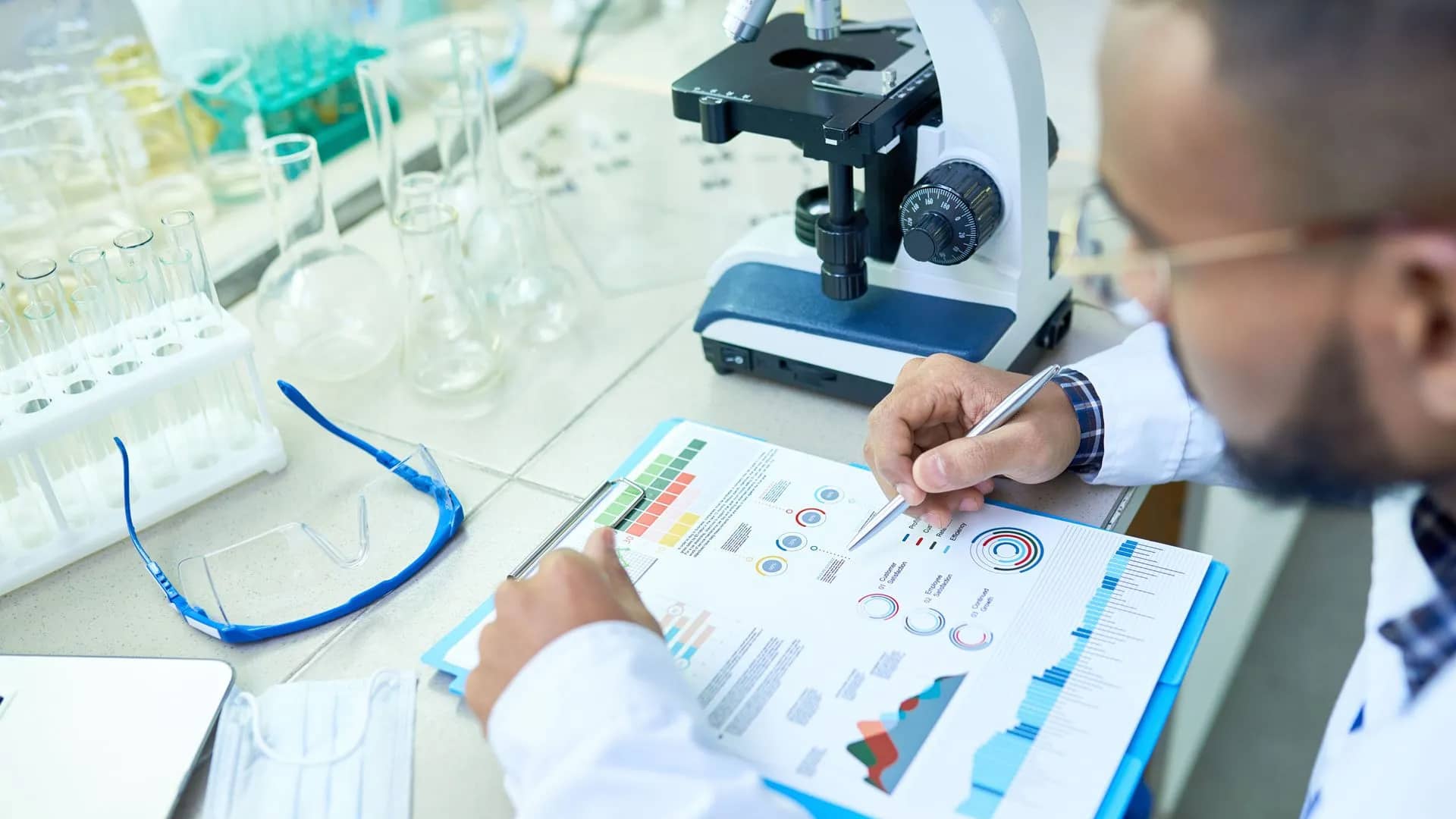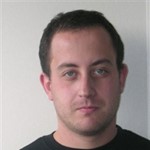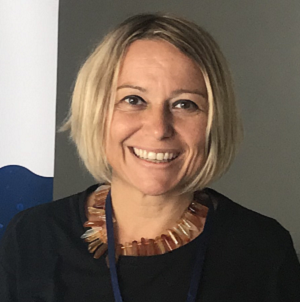
WG5 Leaders
Lead
WG5
Description
WG5 – Remediation, recovery and development of sustainable alternative to plastic materials- aims to identify reuse, recycling, and recovery alternatives for environmental plastics and to define technological approaches for new recycling and recovery alternatives. The WG5 activities are focused on topics related to the development of prevention/mitigation/remediation strategies to reduce the presence of macro-, meso, micro and nanoplastics in the environment. WG5 will consider different approaches from the improvement of recycling process and technologies, the usage of natural and biodegradable polymers as alternative to traditional polymers, up to bioremediation and mitigation actions based on the optimization of advanced oxidation process, membrane and coating technologies, etc.
WG5
Subgroups and subgroup leader
Subgroup 1 – Mitigation approaches
Leader: Patricia Garcia-Muñoz, Universidad Politécnica de Madrid, Madrid, Spain (patricia.gmunoz@upm.es)
Subgroup 2 – Detection procedures
Leader: Carlos Espinoza-González, Centro de Investigación en Química Aplicada, Saltillo, México (carlos.espinoza@ciqa.edu.mx)
Subgroup 3 – Analytical tools
Leader: Marco Milanesio – Università del Piemonte Orientale, Italy (marco.milanesio@uniupo.it)
WG5
Meetings
WG5 Kick-off meeting, on-line (21st April 2022)
First activity of this meeting was introduction of COST Action PRIORITY to the WG5 participants, as well as short self-introduction of the participants. The discussion of the main topics lead to several decisions:
1) to perform a reconnaissance of the WG5 members by collecting information on participant expertise and facilities through an on-line survey;
2) to define the WG5 substructure on the basis of availability, expertise and specific interest of WG5 members;
3) to organize the TRAINING SCHOOL – Micro and nanoplastic pollution: detection and mitigation, present and future challenges associated to the 3rd International Conference on Microplastic Pollution in Mediterranean Sea, μMED (28-30 September 2022) in Naples, Italy, Partenope Congress Center.
2nd WG5 meeting, 5th July 2022, hybrid meeting (Brescia, Italy)
The main outcomes of the meeting were:
1) analysis of the on-line survey and identification of the topic of interests of the WG5 members;
2) Hypothesis of WG5 breakdown in subgroups and identification of subgroup leaders;
3) Structure of the TRAINING SCHOOL – Micro and nanoplastic pollution: detection and mitigation, present and future challenges;
4) Discussion on specific topics:
- Multivariate analysis approaches by Marco Milanesio Università del Piemonte Orientale, Alessandria Italy.
- Biodegradability and Biodegradable polymers by Rosica Mincheva University of Mons, Belgium.
3rd WG5 meeting, 21st September 2023, hybrid meeting (Bruxelles, Belgium)
The main outcomes were:
1) Presentation of WG5 subgroup leaders;
2) Discussion on specific topics:
- Circular economy: towards materials more prone to enzymatic recycling by Jean-Marie Raquez University of Mons, Belgium.
- Multivariate analysis methods for polymer characterization: toward the reduction of waste in EPS production and usage by Marco Milanesio Università del Piemonte Orientale, Alessandria Italy.
- From desert to farmland: local solutions for global microplastic challenges by Carlos Espinoza González Research Center for Applied Chemistry, Saltillo Coahuila, Mexico.
- Biodegradation of plastics induced by marine organisms: new plastic materials and future perspectives for bioremediation approaches by Giovanni Libralato Univesity of Naples Federeico II, Naples, Italy.
- Towards novel photochemical aerobic upcycling processes of polystyrene plastics: applications in the synthesis of pharmaceuticals Christoforos by Kokotos National and Kapodistrian University of Athens, Panepistimiopolis 15771, Athens, Greece
- Graphene-based aerogels for micro and nano plastic filtration by Halit Cavusoglu Selcuk University, Konya, Türkiye
- Reduction and determination of microplastics in wastewater through elutriation/centrifugation by Rubén Rodríguez-Alegre Leitat Technological Center, Terrassa (Barcelona), Spain
- Poly(lactic acid) production and chemical recycling on a circular economy approach by Valentina Sessini Universidad de Alcalá, Alcalá de Henares (Madrid) Spain.
- An engineered cellular system to remove nano/micro-plastic contamination by Urartu Ozgur Safak Seker Bilkent University, Ankara, Turkey
WG5
Completed or ongoing activities
- Training School – Micro and nanoplastic pollution: detection and mitigation, present and future challenges
The TRAINING SCHOOL – Micro and nanoplastic pollution: detection and mitigation, present and future challenges associated to the 3rd International Conference on Microplastic Pollution in Mediterranean Sea, μMED (28-30 September 2022) in Naples, Italy, Partenope Congress Center was organized as a hybrid event including participation both in presence and online thus allowing the participation of more than 51 participants per day.
The School has offered an overview on methods and techniques under investigation to early career researchers, to allow them to develop innovative solutions to detect and mitigate microplastics contamination. The school was organised by the Local committee constituted by researchers of the Institute for Polymers, Composites and Biomaterials of the National Research Council of Italy (IPCB CNR) and it was supported by the Cost Committee including all the Management Committee members.
The abstracts of the trainees were collected in a e-book edited by Consiglio Nazionale delle Ricerche IPCB/DSCTM © Cnr Edizioni, anno 2022 Piazzale Aldo Moro, 7 – 00185 Roma ISBN 978-88-8080-365-2 (electronic edition).
WG5
Future/planned activities
- Publication of a position paper on the application of the Directive 2018/852 and other legal bodies aiming at reducing the load of plastics leaking to the environment. The idea and the roadmap was from Roberto Rosal, Stakeholders Engagement Coordinator and it was shared with WG5 rpresentatives.
- Publication of an Open Letter Format in OPEN RESEARCH EUROPE containing the outcomes of the WG5 3rd meeting. The idea and the roadmap was from Carlos Espinoza González.
WG5
State of the art
WG5 participants
- Doi: 10.3390/polym13040574
- Doi: 10.3390/ma15041306
- Doi: 10.1021/acsami.9b06128
- Doi: 10.1016/j.colsurfa.2023.132104
- Doi: 10.3390/pr11030820
- Doi: 10.1016/j.dyepig.2022.110884
- Doi: 10.1016/j.scitotenv.2022.154866
- Doi: 10.1007/s10311-023-01564-8
- Doi: 10.1007/s10311-023-01601-6
- Doi: 10.3389/fmars.2022.1066113
- Doi: 10.1007/s11947-021-02712-0
- Doi: 10.1016/j.fbp.2019.09.015
- Doi: 10.4108/EAI.6-11-2018.2279607
- Doi: 10.1007/978-3-030-40724-7_47
- Doi: 10.1007/978-3-319-93587-4_20
- Doi: 10.1007/978-3-030-20904-9_5
- Doi: 10.1007/978-3-030-22365-6_46
- Doi: 10.7569/JRM.2017.634164
- Doi: 10.1016/j.foodres.2021.110291
- doi: 10.1016/j.chemosphere.2022.136048;
- doi: /10.1038/s43247-023-00982-4
- doi: 10.1038/ s41578-021-00406-9
- doi: 10.1016/j.hazmat.2023.131574
- doi: 10.1016/j.envpol.2023.121460
- doi: 10.3390/catal13020278
- doi: 10.1016/j.chemosphere.2022.137338
- doi: 10.1016/j.jhazmat.2022.128900
- doi: 10.20450/mjcce.2013.451
- doi: 10.1002/pi.2470
- doi: 10.1080/03602550903147247
- doi: 10.20450/mjcce.2014.479
- DOI : 10.17577/IJERTV5IS020099
- Doi: 10.3390/polym15122673
- Doi: 10.3390/microplastics1020020
- Doi: 10.1016/j.scitotenv.2019.02.431
- Doi: 10.1021/acssuschemeng.2c00160
- Doi: 10.1098/rstb.2008.0311
- Doi: 10.1016/j.jcomc.2021.100168
- Doi: 10.1016/j.horiz.2022.100016
- Doi: 10.1016/j.oneear.2023.05.022
- Doi: 10.3390/membranes12020223
- Doi: 10.3390/su15076153
- Doi: 10.1007/s13399-023-04697-6
- Doi: 10.1080/00194506.2022.2119892
- Doi: 10.1016/j.jece.2022.108195
- Doi: 10.1007/s10311-020-01099-2
- Doi: 10.1016/B978-0-323-99908-3.00009-9
- Doi: 10.1016/j.jece.2023.110755

